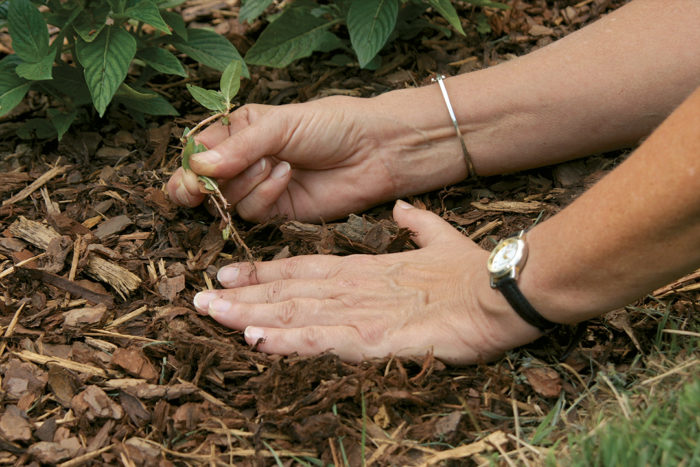
Controlling weeds by cultivating and mulching is essential for a healthy vegetable garden. Weeds compete with your plants for water, nutrients, and sunlight while also harboring pests and diseases. By establishing an effective weed control strategy early in the growing season, you can significantly reduce the time spent on hand-weeding later.
Controlling Weeds by Cultivating & Mulching
Before a vegetable garden is established in the spring, a weed control strategy should be considered. Water, nutrients, and light are competed for by weeds, alongside the vegetables. Insects and diseases are also harbored by weeds, which may then be spread to the vegetables. Efforts made early in the growing season will reduce the amount of hand-weeding required later. Various methods may need to be combined to manage all weed species.
Weeds commonly found in gardens are divided into summer annuals, winter annuals, and perennials. In South Carolina, biennial weeds are present, though these are not typically problematic in gardens.
Summer Annual Weeds
Weeds classified as summer annuals germinate in the spring or early summer, with flowering occurring in the summer or fall. This type of weed is the most common in gardens and is further divided into summer annual grasses and summer annual broadleaf weeds.
Common summer annual grasses such as large crabgrass, goosegrass, and giant foxtail can be easily controlled early in the season. However, if not controlled while small, they can become problematic. For instance, large crabgrass roots into the soil where the stem contacts the ground, allowing it to quickly spread. Grass weeds with fibrous root systems are harder to pull from the ground.
Smooth pigweed, common lambsquarters, purslane, galinsoga, common ragweed, and tall morningglory are examples of summer annual broadleaf weeds. Care should be taken when controlling purslane, as it can reroot if left on the soil surface due to its thick, drought-tolerant stem. Galinsoga, also called quickweed, develops quickly and flowers while still small. Small-seeded broadleaf weeds, like pigweed, are easier to control than large-seeded weeds such as morningglory, which can germinate from a greater soil depth and push through mulch.
Winter Annual Weeds
Weeds that germinate in the fall and flower in the spring are classified as winter annuals. These are often present when the garden soil is prepared in the spring. Common chickweed and other winter annuals can be killed by tilling the soil. Winter annual grasses like annual bluegrass and broadleaf weeds like henbit, common chickweed, and wild mustard are typical in this category but pose less of a threat than summer annuals.
Perennial Weeds
Perennial weeds, particularly herbaceous ones, are more challenging to manage. These weeds are killed by frost but regrow from underground parts such as tubers or rhizomes. Tilling the garden can spread these weeds, as root fragments may form new plants. Common bermudagrass and yellow nutsedge are the most prevalent perennial weeds. Bermudagrass, also known as wiregrass, spreads via stolons and rhizomes. Hand-weeding should thoroughly remove all parts of the plant since bermudagrass can reroot. Yellow nutsedge, often mistaken for grass, belongs to the sedge family and spreads through underground tubers.
Mulches
Mulches, both organic (like grass clippings) and inorganic (such as black plastic), can be effective weed control tools. By preventing sunlight from reaching the soil, mulches inhibit weed growth. Mulching can also suppress perennial weeds.
Organic Mulches: Materials like grass clippings, pine bark, or straw fall into this category. Organic mulches cool the soil during hot weather but may slow plant growth in the spring. Grass clippings from lawns treated with herbicides should not be used, as chemicals like 2,4-D can harm sensitive crops like tomatoes and peppers. Overmulching can reduce soil oxygen levels, which plant roots need to grow. Organic mulches are effective against annual weeds, but perennial weeds can sometimes push through.
Mulch sources should be checked for contamination with weed seeds, rhizomes, or tubers, as using contaminated mulch can worsen weed problems.
Inorganic Mulches: These include synthetic materials such as black plastic and geotextiles. Black plastic is effective in controlling annual weeds but prevents water and oxygen from reaching the soil, so the soil should be checked for moisture during the growing season. While perennial weeds can be suppressed by black plastic, some, like yellow nutsedge, can push through.
Geotextiles, which are more expensive than black plastic, allow water and gases to pass through and provide good control of annual weeds. However, certain weeds can germinate below or grow through holes in the fabric.
Physical Control
Weeds should be removed while they are young to prevent them from taking up large amounts of moisture and nutrients. Hand-pulling works well in small gardens, while a hoe is recommended for larger areas. Weeds should be cut below the soil surface with a sharp hoe, and care should be taken not to damage nearby vegetable roots.
In larger gardens, manual-powered or rotary cultivators can help manage weeds between rows. However, weeds close to vegetable plants should still be removed by hand-pulling or hoeing.
Crop Competition
Once vegetables are established, their foliage will shade the ground, which reduces light available to weeds. Close spacing of vegetables further enhances this shading effect, reducing the potential for weed growth.
Chemical Control
In most gardens, a combination of mulching and hand-weeding will be sufficient for weed control, making herbicide use unnecessary. However, in larger gardens, herbicides may be applied. Herbicides may temporarily reduce the vigor of some vegetables, especially under cool, wet conditions, but the risk of plant injury is minimized by following label instructions.


